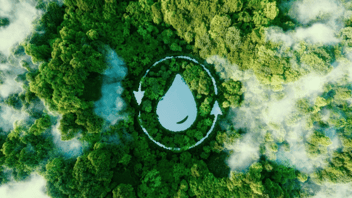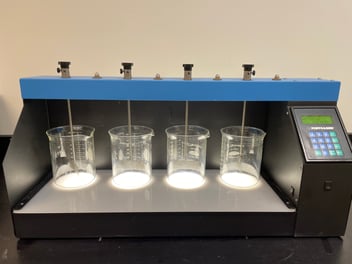Water Treatment Chemical Manufacturers
So you’re looking for a water treatment chemical manufacturer? Although this article is based upon our experience in the industrial water treatment space (cooling, boiler, waste, produce, and process water), the basic principles can apply to other industries as well.
Download List of Water Treatment Companies: If you’re ready to start evaluating companies, here is a list to get you started. Included in this guide are some of the top water treatment companies in the United States.
One of the first questions you should ask yourself is if you’re looking for a long-term partner or if you’re shopping for lowest cost.
long-term partner considerations
If you’re looking for a long-term partner, there are 5 criteria to evaluate chemical manufacturers on:
1) PRODUCT EXPERTISE/TECHNICAL SUPPORT: Water treatment professionals are amazingly talented. We have been in the industry since the 1980’s but we’re continually blown away at the level of expertise many of these experts have. There is however a difference between the R&D chemist that formulates and commercializes a product and a service rep that has been in the field applying chemistries for 20+ years. When evaluating a chemical manufacturer, you want to be sure that they have experience both formulating and field application experience. On top of that, if you have a technical question, you want to be able to get a hold of them quickly. Below is a list of questions or areas to look out for when evaluating if the company has the technical support you’ll need.
- Can the company formulate a specialty blend to meet the unique needs of your site?
- When you call or email, does your application expert get back to you quickly?
- Can they send a sample kit that is specific to your site to evaluate with jar testing?
- Will the rep come onsite during a trial or troubleshooting?
2) VALUES & CUSTOMER SERVICE: Do Their Values Match Yours? When things are going well, it is easy for all chemical manufacturers to look the same. And anyone can have a tagline that says “Our Customer Comes First”, but we believe actions speak louder than words. As a leader in Customer Service, Zingerman’s (Bakery & Other Food Services) points out that great service starts at the top and at ends with everyone on the staff ‘going the extra mile to do something that the customer didn’t even ask for’. When you’re looking for a long term partner, you should evaluate their commitment to service from the Executive level down to the front line employee level. Are they able to share stories of how they live the values they post on their website or is it just lip service? We often find it isn’t too hard to distinguish between those who talk, and those who act.
3) QUALITY & SAFETY should be of upmost importance in the chemical world. We have been appalled at the lack of attention some companies give to these important criteria. Sure, it costs time, money, and resources to commit to a quality program, but the risks associated with poor quality management should never be ignored. If you can take a tour of the water treatment chemical manufacturer’s facility, you will be able to get a good feeling on their approach to quality and safety. Here are some tips to review during the tour or questions to ask via phone:
- Do they have standard operating procedures (SOP) in place for manufacturing and distribution?
- How do they train on the SOPs?
- Do they have a Change Management program to evaluate changes in inputs such as Raw Materials or processes that may impact the quality?
- What are their LOT control mechanisms and can you trace Finished Good lots back to the Raw Materials used?
- What Personal Protective Equipment (PPE) do operators wear?
- Did the site inform you of their safety procedures when you entered?
- How is the overall organization and cleanliness of the facility?
- Has the site or company won any awards from trade groups such as an award for ‘Responsible Distribution Excellence’ from NACD?
- Is the facility ISO certified and ask them to provide documented ISO proof.
If you can’t visit in person to perform an eye test, thankfully international standards such as ISO and awards from groups like NACD can help provide signals to the industry of plants that take quality and safety seriously. At a minimum we recommend asking for these certifications.
4) COST Cost Cost. Over the last 40 years we have seen more competition making similar products, more manufacturing capacity, and a more informed buyer. While this has put significant pressure on the commodity products described below, it has also had an impact on the specialty chemical industry. When evaluating costs, it is important to take into account all costs, not just the $/pound. Below are 3 key costs to consider- Use cost: All too often we see a purchasing team look at $/pound without taking into consideration that Company A’s product will only require 2 totes of product per month whereas Company B requires 4 totes of product per month. Therefore the $/pound becomes irrelevant and the overall use cost required should be evaluated. A hidden benefit of a product that has lower use cost is it also requires less handling from your onsite personnel which all too often we neglect to take into consideration.
- Freight costs: From an industry shortage of truck drivers to the increased regulations of shipping chemicals, it is important to evaluate a company’s logistics capabilities. We recommend asking for the freight costs itemized. Further, the overall usage required plays a role into this calculation. In the example above with Company A requiring less product to do the job, you need to evaluate the expected total freight bill and not just the dollar per pound.
- Terms: Some companies require you to buy more than you need. Sitting on 12 months of chemical inventory is rarely advisable. Find a chemical manufacturer that is nimble and will work to match supply with your demand.
- What is the Minimum Order Quantity (MOQ)?
- What will your inventory holding costs be if you have a high MOQ?
- What are the payment terms?
- Lead Time – We’ve placed orders with chemical manufacturer’s only to find that it could take 12 weeks to receive our product. If you can plan this far ahead, we commend you. But the reality is we often see companies requiring shorter and shorter lead times. If the company has a LEAN culture they should be a good partner here.
- Private label ability – do you want to private label the material? If so, you better ask this up front.
- Location is critical in the lowest cost consideration but it still plays a role here. Does the company have localized blending capability or localized warehousing to cut costs and lead time out of the supply chain? If you are required to ship 5,000 gallons via bulk from Atlanta to California, you’ll be hit with a hefty freight bill so be sure to consider this.
lowest cost provider
If you’re shopping for lowest cost, you probably know exactly what you want, the product is a commoditized chemical, and you’re ready to make a transaction. There is a big market of commodity chemicals where they compete aggressively on cost. And when cost is your first consideration, you may sacrifice a bit on the product expertise and customer service but that is okay because you probably don’t need it. The other considerations noted above related to quality, terms, and supply chain still apply and can be buried in hidden costs.


